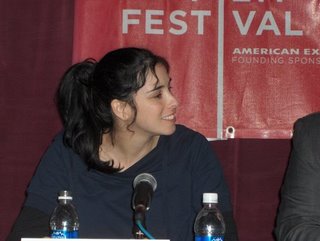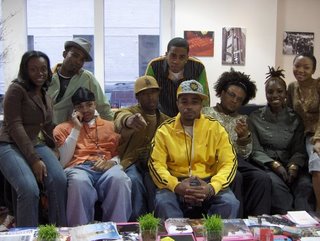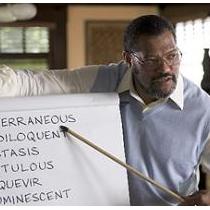Who's watching the babies while they're watching TV
A Kaiser Family Foundation report on "electronic media in the lives of infants, toddlers, preschoolers, and their families" was released today at a press conference featuring experts and producers of this fastest-growing audience group -- children under age 4.
Electronic media is a central focus of many very young children’s lives, used by parents to help manage busy schedules, keep the peace, and facilitate family routines such as eating, relaxing, and falling asleep, according to a new national study released today by the Kaiser Family Foundation. Many parents also express satisfaction with the educational benefits of TV and how it can teach positive behaviors. The report, The Media Family: Electronic Media in the Lives of Infants, Toddlers, Preschoolers, and Their Parents, is based on a national survey of 1,051 parents with children age 6 months to 6 years old and a series of focus groups across the country.
According to the study, in a typical day more than eight in ten (83%) children under the age of six use screen media, with those children averaging about two hours a day (1:57). Media use increases with age, from 61% of babies one year or younger who watch screen media in a typical day (for an average of 1:20) to 90% of 4 to 6 year-olds (for an average of 2:03).
In many homes, parents have created an environment where the TV is a nearly constant presence, from the living room to the dining room and the bedroom. One in three (33%) children this age has a TV in their bedroom (19% of children ages 1 year or younger, 29% of children ages 2-3 years, and 43% of those ages 4-6 years). The most common reasons parents give for putting a TV in their child’s bedroom is to free up other TVs in the house so the parent or other family members can watch their own shows (55%), to keep the child occupied so the parent can do things around the house (39%), to help the child fall asleep (30%), and as a reward for good behavior (26%). As one mother who participated in a focus group in Irvine, CA said, “Media makes life easier. We’re all happier. He isn’t throwing tantrums. I can get some work done.”
Unsurprisingly, all the people who produce media (representatives from PBS, the Cartoon Network, the new all-infants television channel, and Sesame Street's new DVDs for infants) ranged from "what's the problem" to "it's a fact of life that these kids will watch television so we might as well make sure it's the best that's available."
But the experts whose paychecks do not depend on having babies and toddlers watch television were unequivocal that this is not good for them. While the first group kept insisting "the train has left the station," Dr. Stanley Greenspan replied, "Then it's time to get it back on track." He said that the youngest children do not learn from modeling (copying) behavior they observe on television; they learn from experience. "Experience wires the brain," he told the group.




 Lucy Liu
Lucy Liu Elvis Costello
Elvis Costello

 Finally Out Of P.E.
Finally Out Of P.E.


